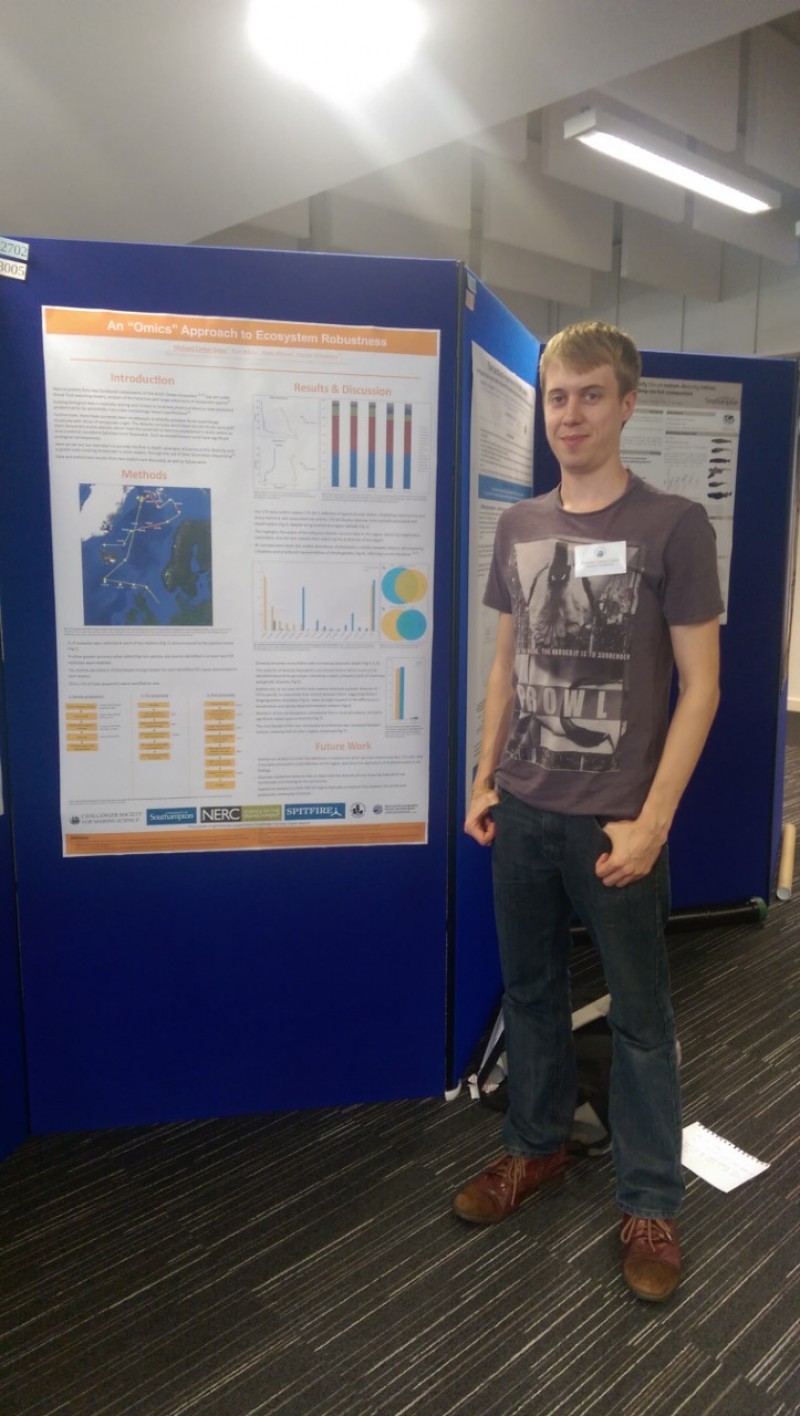Biennial Challenger Conference: Liverpool
Mike Carter-Gates
University of Southamptn/Marine Biological Association

I would like to thank the Challenger Society for Marine Science for granting me a travel award to attend the 17th Biennial Challenger Conference held in Liverpool. The conference took place on 5th-9th September 2016 and was jointly hosted by the University of Liverpool, John Moores University and Nation Oceanography Centre. Attending the conference to present my poster on ‘An “Omics” Approach to Ecosystem Robustness’ was both an interesting and valuable experience, which would not have been possible without the support from the Challenger Society.
The Biennial Challenger Conference brings together predominantly early career scientists from all fields of marine research, spanning Ecology, Physical Oceanography and Biogeochemistry to name but a few. As such it represented the ideal forum to discuss my work to date and plans for the future of my project with peers at a similar stage in their career. The feedback I received was friendly and helpful, with novel insights and approaches suggested thanks to the diversity of the fields that the conference brings together. These discussions, which were aided by coffee and the evening drinks receptions at the poster presentations, have already helped in formulating some new research ideas which will feed into the next stage of my PhD over the coming months.
This diversity was also reflected in the broad range of Social events scheduled throughout the conference. These ranged from focus groups tackling topics such as the current barriers facing early career scientists to the conference dinner held at the Liverpool Anglican Cathedral. These events presented a great opportunity to meet fellow marine scientists and really helped to encourage discussion, which spilled over to outside the conference as we spent a couple of nice evenings exploring the city and enjoying some excellent food at local restaurants.
Throughout the conference the talks spanned a broad range of topics and were well managed, allowing you to drop in and out of sessions to cherry pick the talks which really peaked your interest. While all keynote talks were engaging and entertaining, my personal highlight was that of Professor Tim Lenton on ‘Early Warning of Climate Tipping Points’ and has prompted me to explore this topic further.
It was a great conference which has added value to my PhD and I would like to reiterate my thanks to the Society for the opportunity.
Profile:
I am a PhD student at the University of Southampton, currently based at the Marine Biological Association in Plymouth. My research focuses on exploring the diversity of marine arctic protists using molecular techniques to make comparisons with temperate community structures and predictions of changes to community structures under environmental change.
Latest News
Royal Society Publishing Photography Competition 2025
Please see a message from the Royal Society below:
We are delighted to announce that the 2025 Competition is now open for entries until 15 August for a chance to win £1000! The competition celebrates the power of photography in conveying the wonder of science happening all around us and photographs can be submitted in the categories of: Astronomy, Behaviour, Earth Science and Climatology, Ecology and Environmental Science, and Microimaging.
The competition is free to enter and open to anyone studying or working in science at graduate level or above. Category winners will receive a one-year membership to the Royal Photographic Society and the overall winner will receive a grand prize of £1,000. Find out more: https://bit.ly/RSPphotocomp
October 2025 MEDIN Workshop: Marine Data Management, Governance and the MEDIN toolset
The Marine Environmental Data and Information Network (MEDIN) are pleased to announce that registration is now open for the next occurrence of our popular free online training workshop: ‘Marine Data Management, Governance and the MEDIN toolset’ on the 13th – 17th October 2025 on OceanTeacher Global Academy.
Marine Data Management, Governance and the MEDIN toolset
The Marine Environmental Data and Information Network (MEDIN) and OceanWise are delighted to invite you to attend our popular free online training workshop: ‘Marine Data Management, Governance and the MEDIN toolset’ on the 19th – 23rd of May 2025.
